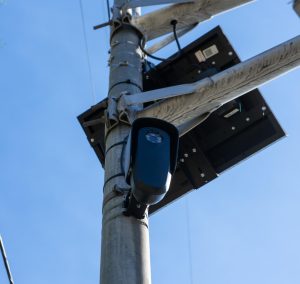Basement bathrooms and being ignored: Trans life at Whitman
September 15, 2022
Whitman’s published FAQ about being LGBTQ+ silently ignores trans students, who are only tangentially referenced, always clumped with the L, the G, the B, the Q and the +. This is how I feel about being a transgender student at Whitman — clumped in with the rest of the queers and ignored. As a non-binary person who uses they/them pronouns, I am frequently misgendered both in class and in student spaces. Whitman’s lackluster attempts create significant and sometimes lethal harm for its transgender students.
Whitman attempts to create an inclusive environment with policies such as pronoun sharing, but fails to do so. An attempt to include trans people as soon as they are introduced into the space with pronoun sharing lays down the idea that everyone uses pronouns so trans students do not have to single themselves out. However, pronouns only work if professors and peers actually use them. This is frequently not the case. They/them becomes he/him, she/her turns into he/him and so on. Performative pronoun sharing is a perfect example of the Whitman trans experience. Trans students will share pronouns that are frequently forgotten whenever they differ from the cis pronouns that their peers expect. This lack of true acceptance is the type of performative action endemic to Whitman.
There are other incomplete measures at Whitman. Training for how to interact with trans students’ identities at Whitman doesn’t even happen. The first-week orientation schedule, which includes the training students receive, has no mention of training for trans identity. The only place gender seems to exist is when your RAs and RD talk to you about sexuality (another situation of being clumped in with the rest of LGBTQ+). I felt ignored: my identity boiled down to a box on a survey. Whitman tries to display a platform of inclusivity, and is happy to tell you all about why being queersexual should be accepted, but transgender students do not receive the same treatment. Even if the mandatory first-year training includes aspects about trans identities, this training is infrequently repeated if at all. In the best case, there may be a few mentions in RA-run trainings that are supposed to last your entire time at Whitman.
Other smaller choices are easy to see as well. Gender-neutral bathrooms are great and do help me avoid awkward situations in bathrooms, but frequently there is only one per building tucked in the basement or in a small corner. Often these are hard to find and take a long time to get to. I can’t even find one in the main building of Olin, and, because I still pass, I simply use a gendered bathroom so I do not miss class. Gender-neutral housing is another essential policy, but it can lead students to be isolated from their cis peers, thus reducing exposure and interactions that can be truly helpful in educating others.
Whitman’s repeated failure of acceptance and incomplete measures produce significant and repeated mental harm to trans students. According to Community Commons, using proper pronouns can more than halve the rate of suicide and decreases rates of mental illness. Further, a recent study in the Journal of Adolescent Health suggests that feeling accepted in the communities that trans people frequent has a similar result. Fostering acceptance is not only the kind and right thing to do, it is life-saving.
It is all of our responsibility to improve our interactions with our transgender peers. Whitman admin must provide more robust and consistent training; they need to walk the talk. Students also need to reckon with their own privilege and interact with trans peers on their terms. Performative pronoun sharing and tucked-away bathrooms are more than inadequate and create harm. Whitman needs to change; it is unacceptable for a college whose student body and admin consider themselves to be progressive to have such little respect and care for the inclusion of trans students.






